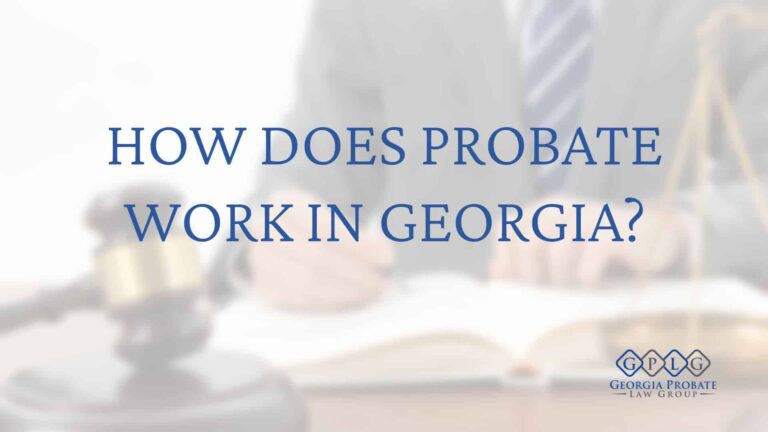Losing a loved one could be an overwhelming and challenging time, and dealing with the legal problems of settling the deceased estate could make it more difficult. You would navigate through a sea of emotions, and the last thing you would need to worry about would be how long do you have to file probate after death.
In this post, we’ll help you understand the basics of the probate process – from defining probate to more complex information, such as the importance of and the steps of filing probate, the time required by law to do this, the implications of not acting promptly, and the situations when you can avoid the probate proceeding.
Let’s start with the beginning.
What Is Probate?
Probate is the legal process completed when a deceased person leaves assets to distribute, such as checking and savings accounts, investments, real estate, and personal property.
In other words, probate is the general administration of a decedent person’s will or of the deceased person’s estate when they die without a will.
When there is a will, an executor is appointed to complete the probate process; if the person dies without a testament, the probate court appoints an estate administrator to administer the deceased person’s assets.
In both cases, handling a late person’s inheritance involves:
- collecting his assets and liabilities.
- paying the outstanding debts and taxes.
- distributing the remaining assets to the beneficiaries.
When Is Probate Required?
According to Georgia probate law, there are no legal requirements for an estate to be probated, and no specific estate value requires probate.
Whether probate is necessary and how long do you have to file probate after death depends on what the deceased person owned at the time of their death and how they owned that asset.
However, there are typically three situations that require going through the probate process:
- to validate the deceased person’s will.
- to determine how to properly distribute the estate of a person who dies without a last testament (dies intestate).
- to distribute the deceased’s assets without a designated beneficiary.
How Long Do You Have to File Probate After Death in Georgia?

Georgia state law does not provide a timeframe for opening an estate within a set number of days, weeks, or months after someone passes away.
While there’s no strict deadline for opening an estate, if you possess an original will, you are legally obliged to turn it over to the appropriate probate court.
From a practical point of view, you’ll want to open the estate relatively soon.
The typical timeframe to open probate is about two weeks or as long as six months. Any longer than that is still fine legally but is uncommon and can cause practical problems.
How to File Probate In Georgia?
How to file a probate depends on whether the deceased left a will or not.
If the deceased dies testate, once the will is located, the first step in the probate process is typically to file a petition with the probate court requesting to probate the will.
The probate petition also requests that the executor nominated in the will be formally appointed to act on behalf of the estate.
At this point, all the decedent’s heirs and beneficiaries should receive notice that the petition has been filed, allowing them to object to it and challenge the will.
If there is no will, a petition is filed seeking administration of the estate, and a notice of administration must be given to all legal heirs and interested parties. The person filing the petition requests the court to appoint them as the estate’s administrator.
Under Georgia law, once appointed, the estate personal representative should run a creditor/debtor ad in the newspaper for four weeks and then wait three additional months to allow creditors to come forward to file a claim.
The next steps are for the estate personal representative to fulfill their administrative duties, such as paying all the estate’s outstanding debts and taxes, before distributing the remaining funds to those who inherit property and closing the estate.
Why Acting Promptly Is Important?
Even if dealing with the legal matters of a loved one who passed away might be a challenging experience, there are several reasons why filing probate promptly is essential:
- Protects the decedent’s estate assets. A prompt probate process helps preserve the estate assets. These include bank accounts, financial accounts, real estate, and other decedent’s property that could be damaged, stolen, or depreciated.
- Prevents unauthorized claims. Regardless of how long do you have to file probate after death, a delay in doing so could eventually lead to unauthorized claims on the estate. By opening the estate relatively soon, you’ll prevent such issues.
- Ensures timely distribution of the deceased’s bequest. In some situations, the deceased surviving spouse and other family members might depend on their expected inheritance to secure their financial stability. Delaying probate usually means delaying access to those funds.
- Mitigates or avoids potential disputes. In some cases, delaying the opening of probate can cause unnecessary tension between the deceased’s family members, prolonging the probate process. Prompt action could optimize the likelihood of such conflicts.
- Avoids legal complications. As in every legal area, succession laws are multilayered and intricate. By taking prompt action, you can navigate them smoothly and avoid potential issues down the line.
Depending on your specific situation, we recommend hiring a probate lawyer to assist you along the way.
Who Has the Power to File for Probate?

There are two situations when it should be filed for probate:
- when the decedent left a will.
- when the deceased dies without a will (intestate).
When the decedent dies testate (left a will)
When a will exists, an executor is also nominated to handle the deceased’s estate. This person is responsible for initiating the probate process and filing the will with the probate court.
During this step, he must also file the necessary paperwork with the probate court to become officially appointed as the executor. When the court formally approves the petition, it also gives them the legal power to act on behalf of the deceased.
When the decedent dies intestate (without a will)
If no will exists, someone, usually a close family member, files with the probate court to be appointed administrator.
The person who wants to become the personal representative must get the heirs to sign the consent form to speed up the process. Then, they must take an oath before the Probate Court, swearing to follow Georgia’s state laws.
Once the probate court approves the request, the petitioner will receive a court order appointing them to the role and specifying the scope of their power.
Can You Avoid Probate?
Typically, you can bypass the probate process if:
- The decedent didn’t own any assets or
- The late person owned just non-probate assets.
Non-probate assets are the properties that can legally be distributed without going through the probate process. We can include in this category:
- Assets that are owned as joint tenants with survivorship rights. Typically, these assets automatically go to the other owner when one of the tenants dies.
- Assets held in a trust. A trust is a document created by a person (the settlor) that states how their properties will be distributed after their death. When the trustor dies, the trust’s assets will pass automatically to beneficiaries, avoiding probate.
- Transfer on Death (TOD) properties. According to Georgia estate law, a TOD provision allows an asset owner to designate a beneficiary who will receive the property after their death without going through probate.
- Payable on Death (POD) account. If a bank account has a POD beneficiary and the bank account holder dies, the funds will be given to the POD beneficiary. The financial institution may require the beneficiary to provide documentation such as a decedent’s death certificate and other documents before allowing them to withdraw money.
- Retirement accounts with a designated beneficiary. These might typically include pension plans, 401(k) plans, or individual retirement accounts (IRAs). If designated beneficiaries are on these accounts, they should receive the proceeds without going through probate.
- Life insurance with a named beneficiary. When the deceased designates a beneficiary for their life insurance policy, they would automatically receive the proceeds after the policyholder dies.
- Annuities with a beneficiary designation. If the decedent designated a beneficiary on an annuity, the funds would typically be released to them as soon as the carrier receives the deceased’s death certificate.
What Happens If You Don’t File for Probate in Due Time (Or At All)?

Failing to file for probate when required can have several financial and legal consequences.
Here are some specific situations that could occur when not respecting the timeframe of how long do you have to file probate after death:
Financial assets may remain frozen.
Without probate, the decedent’s bank accounts and other financial assets cannot be legally accessed or transferred to their beneficiaries.
Difficulty in transferring ownership.
Vehicles and real estate properties owned by the deceased will remain in their name, making it legally complex to transfer ownership without the probate process.
Potential legal claims.
When the estate’s debts are not settled properly, creditors may file claims against the estate, leading to possible legal disputes among heirs and creditors.
Increased risk of family disputes.
Without an order from the Probate Court to enforce the will, disagreements among heirs and beneficiaries are more likely to escalate into contentious disputes.
Tax consequences.
Estates that aren’t properly handled through probate may face penalties and interest from unpaid estate taxes that continue to accrue until resolved.
Do You Need a Lawyer to File Probate?
Under Georgia Law, you don’t need a lawyer to file probate, but this decision typically depends on your specific situation. However, a probate attorney offers important services that might help you navigate the process more smoothly.
A probate lawyer can help you with:
- Identification and securing the estate assets.
- Preparation and filing of all the documents requested by the probate court.
- Management of the estate checking account.
- Collection of proceeds from insurance policies.
- Appraisal for the deceased’s real property.
- Payment of bills, outstanding debts, and applicable taxes.
- Resolution of any income and estate tax issues.
- Distribute the estate assets to the beneficiaries.
Your Next Step
If you don’t know how long do you have to file probate after death, the entire process in Georgia might be a complex, daunting, and time-consuming experience. Regardless of what stage you are in, we highly recommend consulting with a probate attorney who understands the process. This allows you to ensure that everything goes smoothly while avoiding legal issues. Contact our office at (770) 796-4271 if you need legal support.
More information
Disclaimer These websites have not been reviewed by Georgia Probate Law Group and are not endorsed or even recommended by Georgia Probate Law Group. These websites are additional resources that you can use to further your general education on this topic.
Disclaimer: The information above is provided for general information only and should not be considered legal advice. Our probate attorneys provide legal advice to our clients after talking about the specific circumstances of the client’s situation. Our law firm cannot give you legal advice unless we understand your situation by talking with you. Please contact our law office to receive specific information about your situation.



























